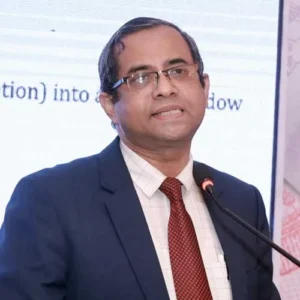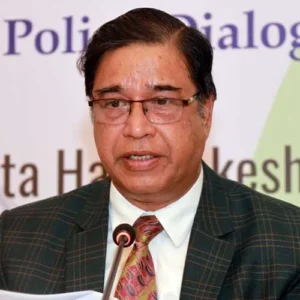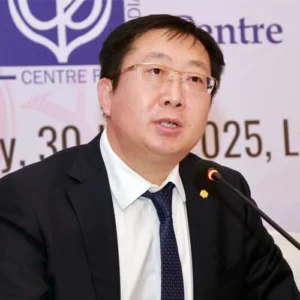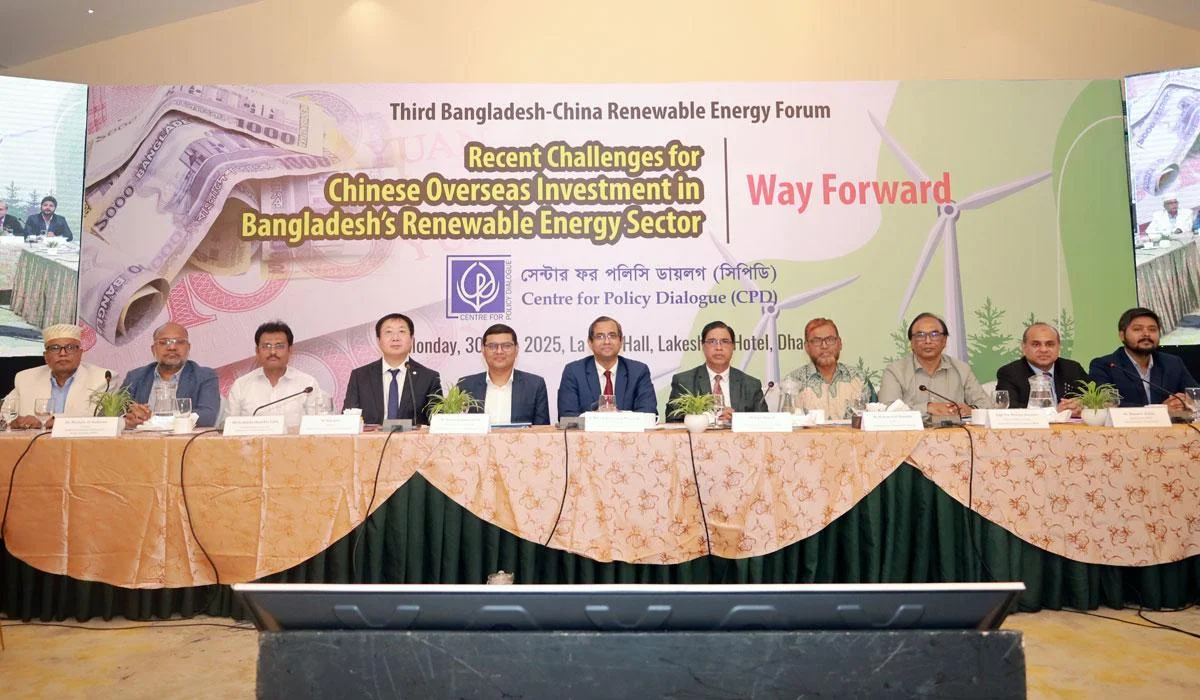The Third Bangladesh-China Renewable Energy Forum, held on 30 June 2025, underscored the urgent need to focus more on investment facilitation along with investment promotion, to simplify investment processes by speeding up paper works and approvals, to make rules more predictable avoiding sudden change and to improve transparency in the renewable energy sector.

Organised annually since 2023, the forum addressed the recent challenges faced by Chinese investors in Bangladesh’s growing renewable energy market. China, which contributes over 50 per cent of the country’s renewable energy investment, plays a vital role in this sector, yet Chinese investors finds in difficult to navigate the investment ecosystem.

Dr Khondaker Golam Moazzem, Research Director at the Centre for Policy Dialogue (CPD), stressed that removing administrative barriers and enhancing transparency in the reviewing processes are crucial to restore confidence among investors and attracting further foreign investments. He pointed out that despite Bangladesh’s potential, delays in project implementation are often caused by poor coordination among government agencies and outdated half-digital platforms.
Mr. Abrar Ahammed Bhuiyan, Programme Associate at CPD, stressed the need to place greater focus on investment facilitation in the context of Bangladesh’s current investment scenario. He also discussed the legal, operational, and regulatory challenges faced by Chinese investors, referencing UNCTAD’s Global Action Menu for Investment Facilitation. In his presentation, he shared the findings of CPD’s study on institutional challenges encountered by overseas investors in the renewable energy sector. A case study was presented on the cancellation of 31 solar projects, valued at approximately USD 6 billion. He noted that these cancellations, despite investors having already incurred significant costs, have seriously undermined investor confidence.

Mr Jalal Ahmed, Chairman of the Bangladesh Energy Regulatory Commission (BERC), acknowledged the challenges in reaching the government’s target of 20 per cent renewable energy by 2030 but stressed that overcoming these obstacles is possible with concerted effort.
He said, ‘We must overcome the existing barriers, as highlighted in the study, and I believe the government will seriously consider the recommendations to facilitate business for investors, particularly in renewable energy.’
Mr Nahian Rahman Rochi, Head of Business Development at the Bangladesh Investment Development Authority (BIDA),emphasised the importance of providing effective facilitation for renewable energy investments in Bangladesh. He also acknowledged the government’s openness on this issue, as renewable energy is one of its priority sectors.
He appreciated the recommendations and expressed his intention to consider and incorporate them to help make the investment process easier for foreign investors.He stated, ‘The real challenge lies in ensuring the right support for investors. BIDA is committed to establishing a renewable energy desk and addressing issues like land acquisition and tariff adjustments.’
Mr Mohammad Alauddin, Rector of the Bangladesh Power Management Institute, raised concerns regarding rooftop solar projects, highlighting the reasons for capacity limitations.
He explained, ‘One of the challenges in developing rooftop solar projects is the capacity limitation for establishments. If an establishment has a demand for two megawatts, it is not allowed to install more than two megawatts of capacity. While this seems reasonable, there is also the issue of grid stability once power is exported to the grid. Before making such recommendations, we need a grid impact study to ensure feasibility.’ He also mentioned that power market risk and permit risks are the two types of hurdles for the investors. He stated that if the system is comfortable to local investors then it will also be comfortable for foreign investors.

Mr Han Kun, President of the Chinese Enterprises Association in Bangladesh, discussed the barriers to investment, particularly power purchase tariff renegotiations and delayed payments.
He suggested, ‘For Bangladesh to remain an attractive destination for foreign investors, particularly from China, it is essential to address these issues promptly and ensure a stable and predictable investment environment.’
Engineer Md Muzibur Rahman, Director, Deputy Secretary, Renewable Energy Development at SREDA, shared insights on the 2025 renewable energy policy, which includes measures such as using agricultural land for solar plants, offering financial incentives for solar investments, and introducing energy storage systems for peak shaving.
He stated, ‘We are also advancing the net metering system, enabling more consumers to participate in energy production. These initiatives will help Bangladesh meet its renewable energy targets for 2030 and 2040.’
Mr Gobinda Chandra Laha, Chief Engineer at BPDB, echoed the importance of improving regulatory transparency and infrastructure.
He said, ‘By enhancing regulatory transparency, improving infrastructure, and streamlining the approval process, we can create a favourable investment environment. BPDB is working on adding 8,400 MW of renewable energy by 2030, with significant solar power projects underway. We need to resolve issues like land availability and grid integration to achieve our targets.’
Mr Mostafa Al Mahmud, President of the Bangladesh Sustainable and Renewable Energy Association (BSREA), pointed out the negative impact of cancelled LOIs on foreign investors.
He said, ‘One of the major challenges in the renewable energy sector is the cancellation of LOIs, which has negatively impacted foreign investors. It’s crucial for the government to address this issue and restore confidence in the sector.’
Mr Wang Weiquan, Deputy Secretary-General of the Chinese Renewable Energy Industries Association (CREIA), shared China’s experience with renewable energy development, including comprehensive policy frameworks and energy standards.
He remarked, ‘China has established a comprehensive policy framework for sustainable energy development, including a Sustainable Energy Law, planning, and incentives, which have boosted market confidence. We need to unlock Bangladesh’s potential by fostering clear policies and strong infrastructure.’
Mr Masudur Rahim, CEO of Omera Renewable Energy Limited, added that Bangladesh has significant potential to become a solar manufacturing hub but stressed the importance of clear guidelines, particularly for rooftop solar projects. He said, ‘With the right support, Bangladesh can become a leading hub for renewable energy manufacturing and exports.’
Engr. SK Md Ruhul Amin, Deputy Managing Director at Chint Solar (Bangladesh) Company Limited, highlighted issues surrounding unclear policies and unsecured investments.
He stated, ‘The main challenge for foreign investment in Bangladesh’s renewable energy sector is the lack of clear policies and unsecured investment policies. We need clarity on where corruption has occurred in the 37 temporarily suspended projects, as we have already invested and transferred money to Bangladesh.’
Mr Md Shahidur Rahman, Country Manager at Jinko Solar Bangladesh, stressed the importance of land acquisition for solar projects and the need for simpler net metering policies.
He said, ‘Land acquisition is crucial for solar projects. If Bangladesh’s Land Ministry addresses this, it will help grow IPP projects. Additionally, simplifying the net metering policy and approval process would encourage more investment in rooftop projects.’
The forum concluded with recommendations to streamline administrative procedures, reduce paperwork, and digitise processes. The creation of a Foreign Investor Support Desk under BIDA was suggested to assist foreign investors throughout the investment cycle. The study team also proposed the development of a centralised online portal to streamline the registration, licensing, and payment processes.
Participants agreed that greater government involvement in improving digital infrastructure and enhancing transparency in tendering processes is vital to achieving Bangladesh’s renewable energy goals.
High-level policymakers, government officials, representatives from Chinese energy investors, energy and power experts, business leaders, international development partners, and journalists participated at the forum and shared their valuable insights.




